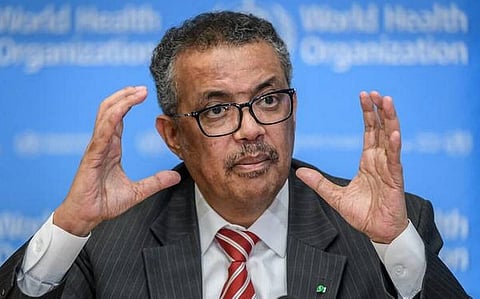
- Home
- Live Blog
- Breaking News
- Top Headlines
- Cities
- NE News
- Sentinel Media
- Sports
- Education
- Jobs

Guwahati: Tedros Adhanom Ghebreyesus, the World Health Organization (WHO) chief, on August 21 expressed hope that the ongoing coronavirus pandemic shall be shorter than the Spanish Flu of 1918 if the world unites and finds a vaccine.
In the absence of a vaccine that can halt the spread of the menacing virus, the WHO has always been cautious in giving estimates on who quickly the pandemic can be dealt with.
Stating that the 1918 Spanish flu "took two years to stop", Tedros said in a briefing in Geneva: "In our situation now with more technology, and of course, with more connectedness, the virus has a better chance of spreading, it can move fast because we are more connected now."
At the same time, however, Tedros said that the world community now has the technology to stop the dreaded contagion.
"So we have a disadvantage of globalization, closeness, connectedness but an advantage of better technology", Tedros said in his briefing.
Tedros said that he hopes to "finish this pandemic in less than two years and called for "national unity" and "global solidarity" against the virus.
"That is really key with utilizing the available tools to the maximum and hoping that we can have additional tools like a vaccine", the WHO chief Tedros added.
It is to be noted that more than 22.81 million people have been reported to be infected by the coronavirus globally since it was first identified in China last year and 793,382 have died, according to a tally.
Briefing the press, WHO emergencies chief Michael Ryan said that it took three waves for the disease to infect most of the susceptible individuals.
Then the flu virus evolved into a far less deadly seasonal bug, which returned for decades, Ryan added.
Michael Ryan also said that very often, a pandemic virus settles into a seasonal pattern over time.